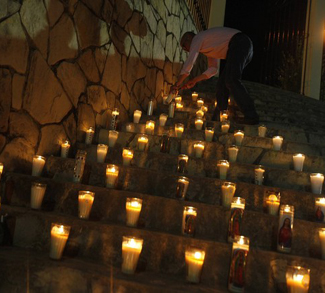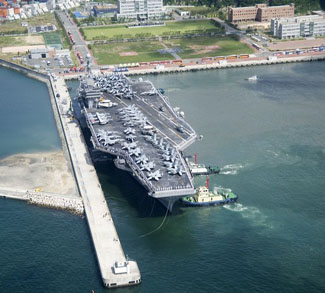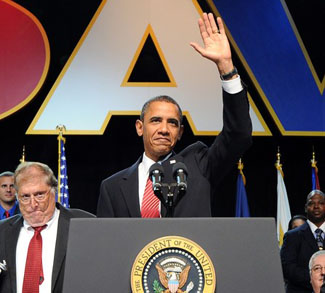FORECAST
The appearance of four bodies hanging from a bridge in Cuernavaca serves as a grim reminder that Mexico’s drug war is far from over.
Soon after coming to power, Mexican President Felipe Calderon took the bold step of deploying the Mexican army to restore order in his home province; a region that had been sunk into chaos by drug cartels. In the four short years since first using the army to battle drug trafficking, the situation has gone from bad to worse. A shocking 28,000 people have lost their lives in four years- that’s a rate of about 19 deaths every day. The Mexican government has also been forced to divert valuable financial resources into the drug campaign, translating into a rise in defense spending from 0.5% of the GDP in 2008 to 4% in 2010.
Now, President Calderon finds himself in an exceedingly difficult position. Deploying the army has done little to alleviate the drug-fuelled violence that plagues Mexico; in fact, it seems to have exacerbated the problem. Violence, no longer restricted to the cartels, has spilled into the public space and laid siege to Mexican society. Brazen attacks like that which saw Edelmiro Cavazo, a mayor in a town in northern Mexico, kidnapped and murdered have become increasingly commonplace.
This situation appears to have transformed into somewhat of a catch-22 for President Calderon: the army isn’t solving the problem, but at this moment it may be the only thing that’s holding state institutions together. In other words, the army cannot be pulled out because civilian police forces cannot hope to deal with the scale of violence that we are now seeing across Mexico. Thus, we should expect to see present levels of violence maintained or even increased over the short to medium term.
It is important to note that President Calderon has publically admitted that his policy of deploying the army to fight drug cartels has not worked out. This admission has led President Calderon to call for a new debate on the “fundamentals” of Mexico’s drug problem. His stated hope is that this debate will give rise to a new legislative approach that can tackle the problem.
It should come as no surprise that the legislative track has gravitated around the question of whether drug prohibition is doomed to fail and if by extension the Mexican government should legalize certain drugs. The notion that drug abuse rehab facilities and prohibition will eliminate demand is clearly flawed. Former President Vicente Fox has recently made clear his view that prohibition has failed and Mexico should legalize drugs. According to Fox, legalization isn’t an admission that drugs are harmless, but is rather the only practical way to tilt the power balance back in favor of the Mexican government.
It’s quite possible that the Mexican government will legalize marijuana as a sort of pilot project in its war against the drug cartels. Marijuana is ideal because it doesn’t carry as heavy a social stigma as drugs like cocaine or heroin, and it is also a lucrative cash crop for drug trafficking networks. Unfortunately, it is unlikely that legalizing marijuana will have a large mitigating impact on the drug violence that currently plagues Mexico. As long as demand for illegal drugs remains high in the United States, Mexico will continue to be used as a transport hub between producers in the south and consumers in the north, regardless of its drug laws.
The opinions, beliefs, and viewpoints expressed by the authors are theirs alone and don’t reflect any official position of Geopoliticalmonitor.com.




